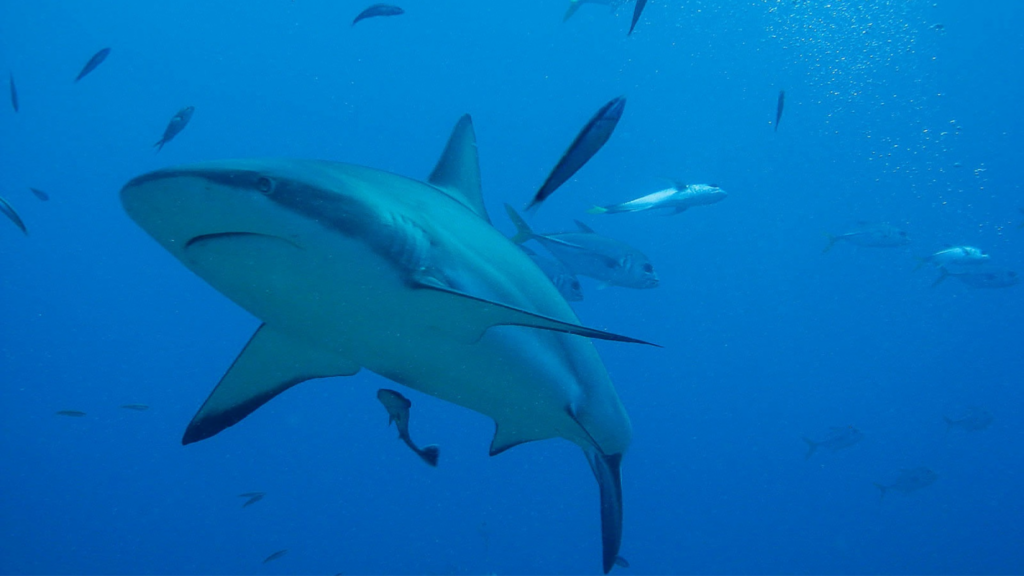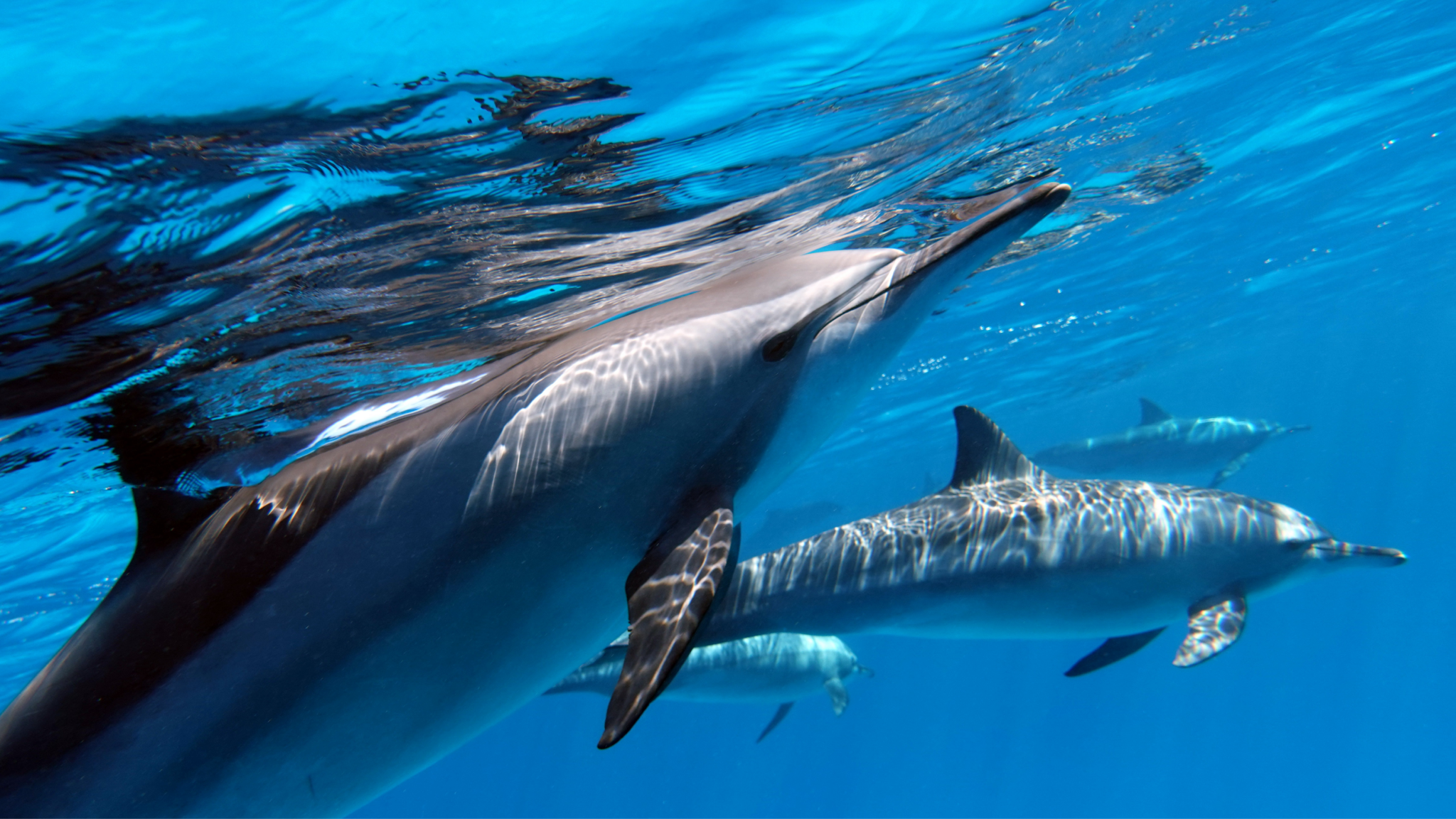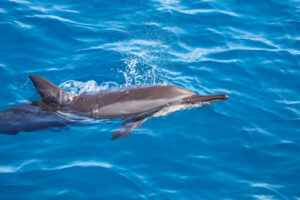What Are Dolphins’ Natural Predators?
Dolphins are known for their intelligence, agility, and social behaviors, which help them avoid danger. However, these skilled swimmers still have natural predators. Let’s explore the main threats dolphins face in the wild.
1. Sharks
Large sharks, like the great white, bull, and tiger sharks, are common predators of dolphins. These sharks often target young, injured, or solitary dolphins. Dolphins in a protective pod are much harder for sharks to catch.

2. Orcas (Killer Whales)
Orcas are powerful predators that hunt other dolphin species. Though they are technically dolphins themselves, orcas use advanced hunting techniques. They often work in coordinated pods to outmaneuver and catch dolphins.

3. Saltwater Crocodiles
Saltwater crocodiles, found in regions like northern Australia, Southeast Asia, and parts of the Pacific, can pose a significant threat to dolphins. These powerful reptiles have been known to attack dolphins in coastal waters, although they are not found in Hawaiian waters.

4. Human Activities
Humans don’t hunt dolphins, but our actions pose significant risks. Fishing nets, pollution, and boat traffic can harm dolphins. As an eco-certified tour operator, Dolphins & You follow Hawaii’s regulations to ensure safe and respectful interactions with dolphins!
What About Natural Predators in Hawaii?
In Hawaiian waters, tiger sharks pose the biggest threat to dolphins. Great whites and orcas are rare in these waters. Great whites prefer cooler waters, while orcas are usually found in colder regions. Tiger sharks are common in Hawaii. These sharks are considered the top predator for dolphins in this region. Dolphin pods usually protect each other, but a lone or injured dolphin may become a target.
Despite the presence of formidable predators like tiger sharks and orcas, dolphins have adapted with intelligence, social cooperation, and agility. Come join the Dolphins & You – Dolphin Encounter Tour on Hawaii’s beautiful west side to observe these incredible creatures in their natural habitat!












